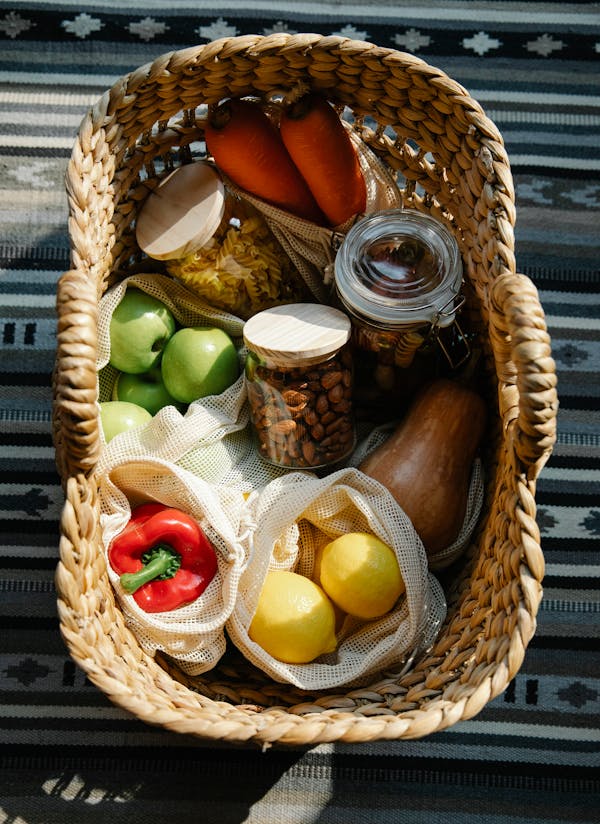The Science Behind Natural Food Products and Their Health Benefits
In today’s world, it is becoming increasingly common to see foods labeled as “natural.” However, the term natural can be misleading. It should be used to describe products that are free from artificial and synthetic ingredients and have a high nutritional value.
Another sub-factor is product sustainability, which relates to environmental-friendliness and animal welfare aspects. This can be communicated through the packaging. Discover more at Jamie Nemtsas.
No artificial ingredients
Modern consumers are more concerned about their health and look for healthy foods to help them stay healthy. They prefer natural products that are less processed and contain no artificial ingredients.
When shoppers see “natural” on a product, they assume it means that it contains no toxic pesticides or artificial ingredients or colors. However, the truth is that most processed foods labeled as natural are not made with no artificial ingredients.
The FDA does not define the term “natural.” Instead, it has an informal policy that says it does not object to a natural claim as long as the food does not contain added color or synthetic ingredients. The FDA also does not consider the way a food is produced when making a natural claim.
No genetically modified organisms
Natural food products do not necessarily contain no genetically modified organisms. In fact, both the USDA and FDA allow products to be labeled as “natural” even if they have been genetically modified or produced with pesticides.

While the FDA’s definition of natural does not address food production, processing, or manufacturing methods, it does indicate that nothing should be present in a product that would not normally be expected to be there. This definition is different from the FDA’s organic food policy, which requires foods to be organic and meet certain health benefits claims.
Research has found that the perception of a food’s naturalness is influenced by its packaging and label. Moreover, it has been suggested that adding independent information to the legal meaning of the word “natural” reduces consumers’ excess valuations for organics over natural foods.
No pesticides
Foods that are labeled natural don’t have to comply with the stricter requirements of organic foods. However, they may be free of artificial additives and ingredients. Natural foods are also unprocessed and high in nutrients.
These foods are grown without pesticides, which can be harmful to the environment and human health. Some studies have linked the use of chemical pesticides to brain damage and fertility issues.
Buying products with the organic label is one way to reduce your dietary exposure to pesticides. According to the EWG, avocados and strawberries have the least amount of pesticides on them. Non-organic apples and berries are often sprayed with multiple varieties of pesticides, which can be hard to remove even when you scrub the skin. In addition, the use of fungicides on fruit has been linked to cancer, Parkinson’s disease, and other health conditions.
No preservatives
While it might sound tempting to choose foods without preservatives, the truth is that there’s no such thing as a completely preservative-free food. A lot of the time, foods that are labelled as ‘natural’ actually contain preservatives in order to keep them fresh for longer.
The use of chemical additives to preserve foods causes problems like oxidation, which leads to rancidity and bad flavor. Moreover, these chemicals can cause a variety of health complications, including cancer, metabolic disorders and organ damage.

Natural alternatives to chemical additives are increasingly popular as they provide a wide range of benefits, such as improved nutritional value and extended shelf life. Many natural preservatives are also derived from renewable resources, which appeal to environmentally conscious consumers. This gives manufacturers an advantage in the market as they are able to stand out from the competition by offering clean label products.
No artificial flavors
Many products that are labeled natural may contain artificial flavors. These flavors are used to add flavor to foods and beverages, but they don’t have the same strict requirements as organic ingredients. In addition, they are often derived from plants or extracts. However, they are not considered to be natural by most consumers. This can be frustrating for consumers who want to eat healthy, whole foods.
While ‘natural’ can mean many things, it doesn’t necessarily mean healthier. Even if a product is labelled as ‘natural,’ it can still be made from chemical compounds like amyl acetate. Organic products, on the other hand, are required to meet strict legal standards to be deemed as such. They must also be free from chemical extraction solvents, preservatives, and carrier oils.
